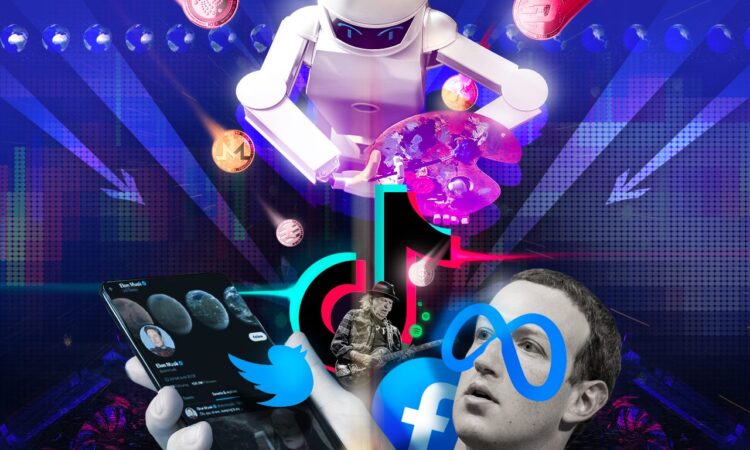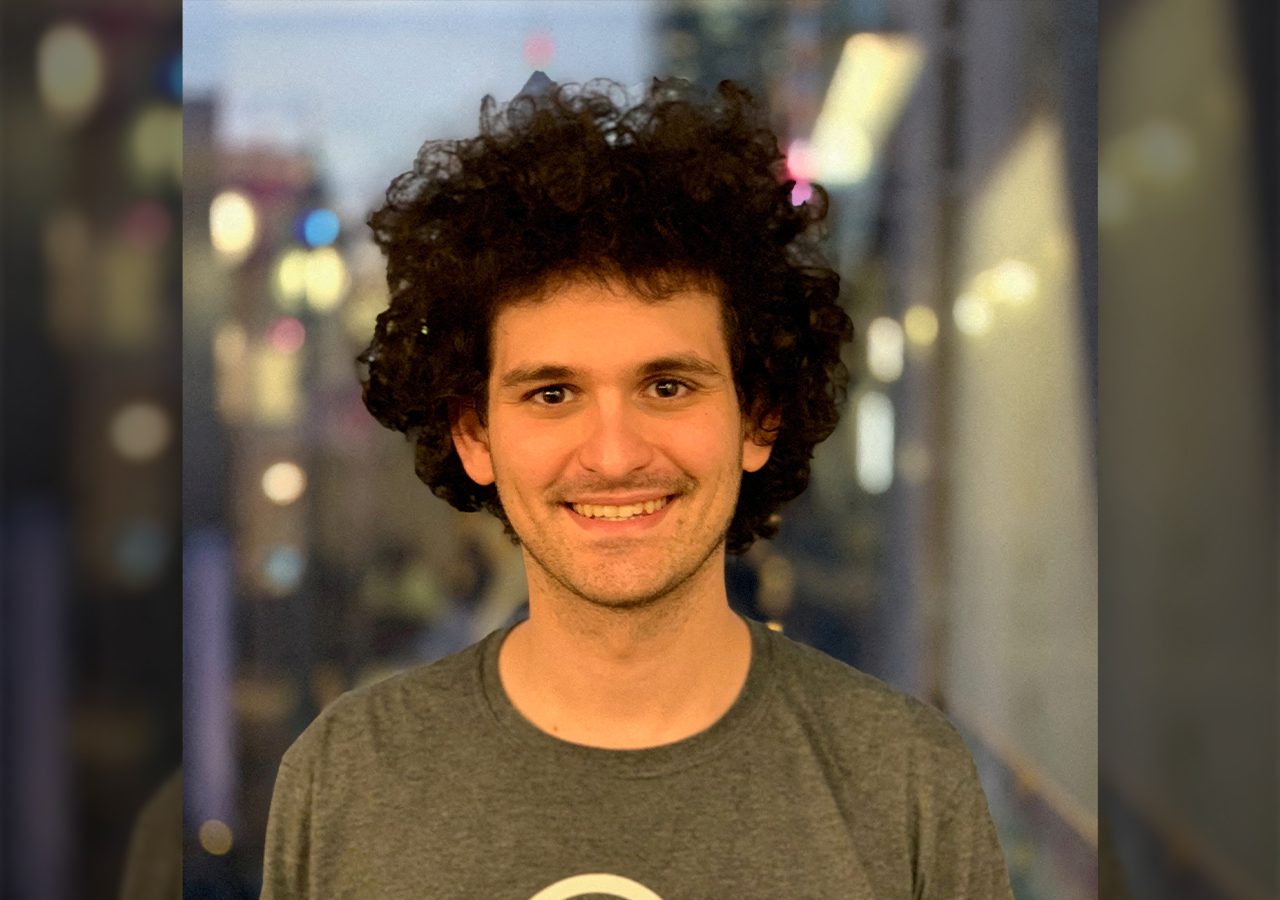
MANILA, Philippines – Billionaires behaving badly, companies calling their employees back from their remote set-ups, cryptocurrencies crashing, and, gasp, Netflix charging more for out-of-household users – the tech industry has had quite the year.
To help you catch up, and prepare you for what might be in store for next year, we’re rounding up the year’s biggest tech stories and tech trends right here.
The Russia-Ukraine war sends ripples through tech industry
The world’s most infamous hacker collective, Anonymous, declares cyber war against Russia, creating all sorts of hacker hijinks on numerous Russian government and media websites and databases.
Ukraine called for the disconnection of Russian sites from the global internet while tech giants such as Twitter, Meta, YouTube, and TikTok blocked Russian state media and government accounts. Russia banned Facebook, Instagram, and Twitter but not YouTube partly because about 75% of Russian internet users use the video platform.
Nearly all the major tech companies have pulled out of Russia: Airbnb, Apple, Amazon, Bumble, DJI, all the way to Intel, Microsoft, Netflix, Nvidia, Samsung, Sony, and Spotify.
USB-C: Coming to an iPhone near you
The EU made a regulatory change that forces nearly all gadgets to use a USB-C connection starting in 2024, and that includes Apple with their Lightning connector. The first iPhone expected to have the USB-C is the iPhone 15, slated for 2023. The US is also mulling a common charger law, with USB-C as the default, but it is not expected to happen soon.
In other charger news, Apple has been in trouble in Brazil for not including a charger with their phones, starting with the iPhone 12 in 2020. The country banned sales of charger-less iPhones in September 2022, on top of a $2.3 million fine in 2021 and an additional $2 million in 2022.
Facebook’s troubles
In its Q4 2021 earnings report published in February 2022, Facebook saw its numbers for daily active users decline for the first time in its history, and also posted a $10 billion loss from its metaverse business. After the report, it saw its stock drop by as much as 26.4%, wiping out nearly $240 billion off its valuation, the biggest one-day loss for a company.
Its metaverse investment has been losing big so far, a total of $15 billion sunk into it since the start of 2021 up to October 2022, without any real dollar returns. Changes made by Apple to block Facebook ad trackers, users flocking to TikTok, dissent within the company including whistleblowers such as Frances Haugen have also been reasons why the company has been struggling.
Meta continued to bleed for nearly the rest of 2022. Since its market capitalization peaked at $1 trillion in September 2021, it has lost about $700 billion of that value by November 2022.
We doubt calling Facebook employees “Meta-mates” will solve the company’s troubles.
Meta’s second-in-command, COO Sheryl Sandberg, also stepped down in June after 14 years with the company.

To be fair, it’s not just Facebook that’s struggling. Nearly all the big tech companies, Amazon, Microsoft, Google, and Apple – despite still huge numbers – are reporting profit declines at a time of inflation.
The New York Times argues as well: “But their sudden slowdown is exposing a weakness. The big tech companies haven’t really found a new, very profitable idea in years. Despite years of investment in new businesses, Google and Meta still rely mostly on ad sales. The iPhone, 15 years after it upended the industry, still drives Apple’s profits.”
Tesla, Snap, Lyft, Twitter, and Microsoft to name some have all announced job cuts as had Shopee.
The people vs. calls to return to office
Technology enabled many of us to be able to continue working as COVID-19 lockdowns kept us home. In 2022, with the pandemic under control, companies have asked their employees to come back to work.
Google called back their employees back in April, while Apple set a September deadline – a move that some employees revolted against. Microsoft and its managers feared that workers slack off when working from home. Elon Musk said in an email to employees at Tesla, “Remote work is no longer acceptable.” Musk did the same at Twitter in November 2022.
Unsurprisingly, 64% said that they would rather quit their jobs than make a full-time return to the office.
In the Philippines, BPO firms were allowed to retain certain tax perks even while allowing a work-from-home setup for employees. Earlier, the government had said that there would be some tax incentives that would be lost if they kept allowing workers to work from home.
Netflix changes
Amid increasing competition from Disney, HBO, Amazon and other streaming services, Netflix reported a loss in subscribers in April 2022, the first time in a decade, and an alarming million more in July. Thankfully for the company, it reversed its fortunes in the third quarter, gaining back more than 2 million subscribers.
In the US, UK, France, Germany, and several other markets, Netflix launched its ad-supported plan in November 2022. Earlier in March, Netflix added an additional fee to profiles using an account outside of one household in the markets of Chile, Costa Rica, and Peru.
The inventor of the GIF dies
Stephen Wilhite, creator of the GIF, died in March. Working at Compuserve in the ‘80s, he programmed the GIF to create “high-quality, high-resolution graphics” in color. Eventually, it would be the format used to create looping images online – an important part of online culture. Wilhite himself had also clarified the pronunciation: “It is a soft ‘G,’ pronounced ‘jif.’ End of story.”
Non-human deaths
Honda’s loveable Asimo was retired in March after a 22-year career of entertaining, well, fans of non-threatening, humanoid robots.
Honda produced a short documentary in October for their beloved biped:

Something that people have more of a love-hate relationship with was Internet Explorer, which was officially shut down in June, 27 years after being an add-on with Windows 95.
With a far shorter history is Google’s game streaming service Stadia, whose shut down was announced in September, with its last day of service scheduled on January 18, 2023. It was first revealed in March 2019.
Sun Cellular, a budget telco service provider in the 2000s, said goodbye in April, with parent company Smart making the announcement.
Rise of TikTok
While social media giants Facebook and Twitter faced their struggles this year, TikTok continued to rise, doubling its revenues to at least $10 billion this year, compared to 2021.
In Q1 2022, users spent the most time on the platform averaging 23.6 hours per month, narrowly edging YouTube at 23.2 hours/month, and beating Facebook at 19.4 hours per month and Twitter at 5.4 hours per month. It has become the third biggest social platform in terms of monthly active users with 755 million, next to Instagram’s 1.3 billion and Facebook’s 2 billion. It’s also increasingly being used as a search engine over Google by Gen Z.
As it grows, it’s also faced greater scrutiny, especially from the US government, with regards to its ties to China, and its laws that would allow the country to force TikTok to cooperate and hand over data if necessary. A Buzzfeed report on leaked internal audio from Twitter appeared to show that certain employees in China have unfettered access to TikTok user data.
On the disinformation front, various reports from US organizations Mozilla, Newsguard, and Free Press have found that TikTok may not be doing any better than Facebook, YouTube or Twitter in the past, with TikTok’s efficient algorithm and video format giving disinformation higher potential to spread faster.
Neil Young vs. Spotify
American musician Neil Young in January protested podcast host Joe Rogan’s presence on the platform in spite of Young claiming that Rogan had been spreading COVID-19 disinformation by giving a platform to guests with controversial takes on the disease. Young gave Spotify an ultimatum: “They can have Rogan or Young. Not both.” Spotify pulled his songs from the platform, with only a few of his songs remaining that were released via other means such as a compilation album or as part of a movie soundtrack.
Another music icon Joni Mitchell followed suit, and a few other artists, removed their catalog on Spotify as well. Rogan soon apologized, and said he would bring in more mainstream experts.
Amid all of this, Apple Music took advantage of the situation, and tweeted Young’s catalog on the Apple Music service, along with a caption: “The home of Neil Young.”
The teenager tracking Elon Musk’s flights
Jack Sweeney was 19 years old at the time when he started creating Twitter bots that would track the flights of billionaires and celebrities including Elon Musk. So what’s a billionaire to do? Throw money at the problem. Musk offered Sweeney $5,000 back in January, telling the kid in a message that “I don’t love the idea of being shot by a nutcase.”
Sweeney shot back at Musk, asking for $50,000 instead as his college fund, and as funds for a car, possibly a Tesla Model 3. That the account @ElonJet is still up likely means that no deal took place. Sweeney also has @CelebJets still up, which had people up in arms over celebrities’ use of their private jets over short distances amid climate change. Russian oligarchs via the account @RUOligarchJets were not safe from Sweeney as well.
The accounts also post figures such as how much gas a flight consumes and its emissions:
Musk buys Twitter
Of course, the teenager would be the least of Musk’s headaches. His Twitter deal was finalized in October 2022, with an owner turnover that’s been as publicly tumultuous as we’ve seen, the earlier moments of which we’ve detailed here.
During the short time Musk has been in charge, top executives were fired; almost half of the employees were laid off including those from the crucial content moderation team; former US president Donald Trump was reinstated on the platform; and Ye, formerly Kanye West, was reinstated and then removed again after posting a picture of the swastika combined with the Star of David. Musk also introduced changes such as paying a fee for the blue verification checkmark, and expressed a desire to add video calls and encrypted chats.
Odd tech: A startup whose product makes call center workers sound more like a white American
A startup called Sanas has a filter that is able to transform call center agents’ accents into sounding more white and American. Vice describes the product, “After Sanas is applied, the voice sounds more like a text-to-voice reader than another human being, but it does sound typically American and white.”
Beyond the controversy such a product might court, Vice muses, “Too often, technology is deployed to address – and profit from – an issue far removed from the core problem. Is the real problem to be solved that call center workers are misunderstood because of their accents? Or is it that we are content with growing an industry rife with surveillance, racism, and intolerable working conditions?”
The Philippines’ SIM Card Registration Act
President Ferdinand Marcos Jr. in October signed the SIM Card Registration Act into law, a version of the bill where the registration of social media accounts has been removed.
The approval comes amid a rise in text scams that have driven telcos Smart to block all texts with URL shorteners and for Globe to block all texts with all URL links. SIM card registration, some believe, would help curb scams, but there is also concern that it would only help surveil citizens, especially groups such as journalists who need to safeguard sources. Another concern is that scammers will eventually find ways to conduct phishing in other manners.
SpaceX’s Starlink satellite internet gets approval in the Philippines
Elon Musk’s SpaceX and its Starlink satellite internet service was approved by the National Telecommunications Commission in May, making the Philippines the first country in Southeast Asia to have access to Starlink services.
With Starlink’s approval as a value-added service provider, the company may “directly access satellite systems, build, and operate broadband facilities to offer internet services.”
Crypto winter
A little over a year ago, bitcoin traded at a peak of about $68,000 to a dollar. At the time of writing, its value is about a fourth of that at about $17,000. Bitcoin, the most mainstream expression of cryptocurrency, has always seen dips and rebounds, but this year’s spate of troubles feel like a reckoning for an industry that once touted itself as the future of finance.
In May, stablecoins or cryptocurrencies backed by fiat money like the US dollar, promised to give investors security against volatility, maintaining a 1:1 value with the US dollar. Still, the mechanism failed as the US faced its highest inflation in 40 years, forcing investors to head for safer investments.
More recently in November, crypto faced another big scandal as crypto exchange FTX crashed as users rushed to withdraw funds over news that the exchange’s funds have been invested in riskier assets. One triggering factor was another crypto exchange Binance’s decision to sell about $580 million worth of FTX’s FTT tokens, following the news. Soon, FTX found it had no more money to provide customers as it went into a liquidity crisis.

In a year that saw crypto investors lose about $2 trillion since the industry’s 2021 peak, CNBC wrote, “If this is indeed the future of finance, it’s looking rather bleak. Crypto was supposed to bring transparency. Transactions on the blockchain could all be tracked. We didn’t need centralized institutions – banks – because we had digital ledgers to serve as the single source of truth. That narrative is gone.”
Crypto’s loss leads to gamers’ gain
Meanwhile, PC gamers get to celebrate a little as prices of GPUs go down as crypto plummets. Gamers have long had to compete with cryptocurrency operations that make use of GPUs to mine. But as mining profits declined, it would appear that GPUs now have one type of customer to serve again.
In September, Ethereum, the second most popular crypto next to Bitcoin, also shifted from a proof-of-work system to a proof-of-stake concept, which doesn’t use GPUs, further lessening the value of GPUs in the crypto scene.
Major acquisitions
Amazon acquired robo-vacuum Roomba in August, triggering fears that Amazon is out not just to clean your house but to map every room in it.
In July, Sony bought gaming company Bungie, which made Halo, which is forever tied to Sony rival Microsoft and its Xbox console. Halo was an exclusive to the original Xbox launched in 2001, and was incredibly crucial to Microsoft’s entry into the gaming market.
Earlier in January, Microsoft had announced it would be buying gaming mega-company Activision Blizzard, which owns many huge franchises, the biggest of which is Call of Duty. Sony protested, saying it would be anti-competitive. At the time of writing, Microsoft has put forward an offer to give Sony a 10-year contract with Call of Duty games to counter antitrust probes.
In another bit of Sony news, the company partnered with fellow Japanese firm Honda to produce electric vehicles by 2025, with the option of having PlayStations built into the cars.
AI advances
AI’s ability to dabble in the distinctly human provinces of painting and creating visual art has been limited until this year when an AI program called Midjourney made headlines. An image produced by the software won first place at the Colorado State Fair, as seen in the Instagram embed below, in August 2022. The win caused controversy, stirring arguments on whether what the software created was art, and what the moment would mean for human artists who invest time and effort to hone their craft, and do it for a living.
In June, another program called DALL-E 2 also made a splash making the first ever cover done by AI for Cosmopolitan magazine. In the same month, Google engineer Blake Lemoine, claimed that one of the company’s AI technologies, LaMDA, has gained sentience, publishing a transcript of their conversation where the AI was able to seemingly explain complex human topics.
In October, a music trade group in the US argued that AI tools being trained on copyrighted music to create music is a case of infringement, and threatens musicians’ livelihood as well.
On the other hand, James Earl Jones, the original voice of Darth Vader, signed off on having his voice used for future Darth Vader performances using AI-crafted voice performances powered by archival Vader recordings of Jones.
EU’s Digital Services Act
The EU approved the Digital Services Act, seen as landmark legislation in regulating social media platforms. It seeks to levy platforms that fail to act on illegal content with a fine of up to 6% of a company’s annual global revenues, while repeated violations could see them banned from the EU. – Rappler.com

![[OPINION] SIM card registration: The bill is dead, long live the bill!](https://moneylowdown.com/wp-content/uploads/2022/12/tl-sim-card-registration-bill-is-dead-2-2.jpg)





